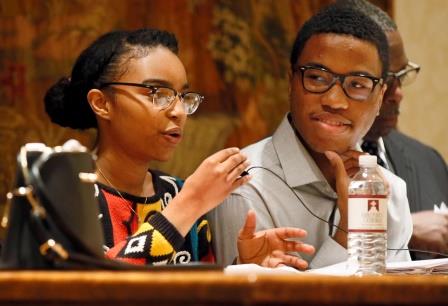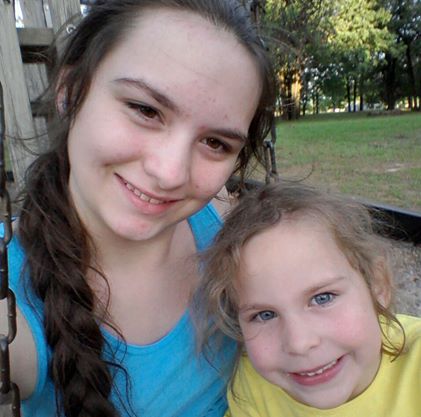Students speak at important forum
February 16, 2016
Two Harding seniors spoke recently at the “Evening of Listening: Black Lives Matter” panel that was held in an effort to both raise awareness about the issue of “Black Lives Matter” and to help the community understand its importance.
Samaiyah Harpe and Keith Leach spoke on the all-black panel at the “Evening of Listening: Black Lives Matter” forum. The event was held at St. Paul’s Episcopal Church on Thursday, January 21 and attracted a crowd of about 200 people. The panelists spoke about the controversial movement that has gained attention nation-wide.
The “Black Lives Matter” movement was started in 2012 after George Zimmerman was acquitted for the murder of Trayvon Martin. It has since then grown to encompass a series of events. The goal of the movement is provide the same human rights for all black lives.
“There’s a difference between what ‘Black Lives Matter’ is saying and what ‘All Lives Matter’ is saying,” Harpe said. “‘All Lives Matter’, though it is true, it never was said until ‘Black Like Matters’ was established. It was said more as backlash against ‘Black Lives Matter’ rather than support of ‘All Lives Matter.'”
The panelists agreed that all lives won’t matter until black lives matter. Other panelists included: the Rev. Joseph Alsay, rector of St. Augustine of Canterbury Episcopal Church; the Rev. Octavia Lindsey, pastor of St. Mary’s Christian Methodist Episcopal Church; the Rev. Victor McCullough, senior pastor of Quayle United Methodist Church; former state Sen. Connie Johnson.
“I just turned 18, and it’s disheartening to see that by turning that age, I’ve been thrown into this trash statistic of how black males aged 18 to 24 are slated to do poorly for the first part of their lives. As a result, homicide is their leading cause of death, and a third of us are unemployed,” Leach said.
Leach isn’t wrong. African Americans and Hispanics made up 58 percent of all prisoners in the U.S. even though they only make up a quarter of the population. If blacks and Hispanics were incarcerated at the same rate as white individuals, prison and jail populations would decline significantly. Black students make up 70 percent of arrested or referred students. Nationwide black students graduate at a rate of 69 percent compared to white students that graduate at a rate of 86 percent.
“It is important to have these discussions as a community so everyone can have a better understanding for the betterment of society as a whole,” Leach said.
Harpe and Leach received a standing ovation after speaking, and have been asked to speak at a few churches on the topic of “Black Lives Matter.” However, there are no current dates as to when this will happen.



CJ Koso • Mar 25, 2016 at 8:41 pm
I really appreciate you going into why the Black Lives Matter movement started and how All Lives Matter was never for all of us. We’ve got a long ways to go but its so heartwarming seeing fellow students involved in making the world a better place. Great article!!